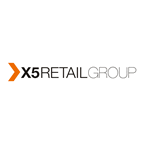Moscow, 2017-Oct-17 — /EPR Retail News/ — X5 Retail Group ("X5" or "the Company"), a leading Russian food retailer (LSE: FIVE), plans to concentrate on its three major formats: Pyaterochka proximity stores, Perekrestok supermarkets and Karusel hypermarkets. The Company's small-format convenience stores operating under the Perekrestok Express brand in Moscow will be put on sale. X5 has selected Renaissance…






